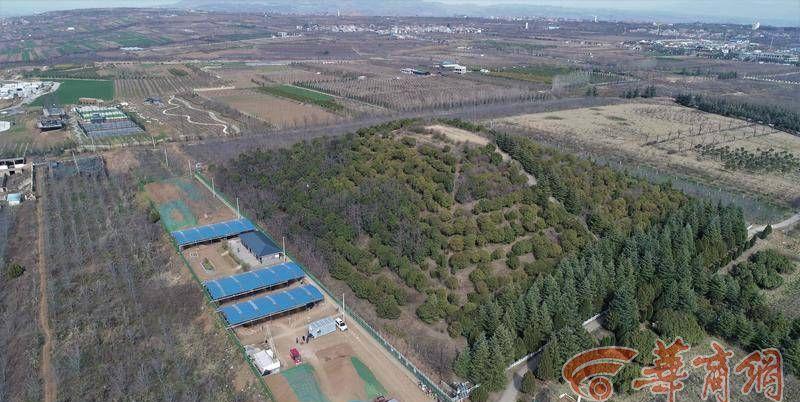
△ Exterior view of the excavation site of Empress Bo's Southern Tomb
According to the "Tomb Records of the Emperors of Shaanxi", Liu Heng (200 BC ~ 157 BC), the fourth son of Han Gaozu, the mother Bo Ji, the brother of Emperor Hui of Han. In 196 BC, Gao Zu was deposed by Chen Feng and Ding Daidi. Liu Heng was made the acting king. In 180 BC, lü Hou died, and the chancellor Chen Ping, the taiwei Zhou Bo, and Liu Zhang, the Marquis of Zhuxu, launched a palace coup and installed Liu Heng, the tolerant and peaceful acting king, as emperor, as Emperor Wen of Han. After Emperor Wen of Han ascended the throne, he exerted great efforts to govern, attached importance to agriculture, reduced taxes, and built water conservancy, so that the Han Dynasty entered a period of strength, prosperity and stability. The reign of his son Emperor Jing was known as the "Reign of Wenjing".
During the 23 years of Emperor Wen's reign, "the palace court and the chariot rode and served the imperial court, and there was nothing to gain." He was "a noble son of heaven, rich from all over the world, dressed in silk, with a leather foot, with a sword in Wei, with Wanpu as a seat, without a blade in a soldier's wood, and without a robe." Even his favorite Lady Ji Shen is still "naked". In the Qin and Han Dynasties, when thick burials were prevalent, Emperor Wen demanded that "all the tombs should be ruled with tiles, and must not be decorated with gold, silver, copper and tin, and the tombs should not be treated, and the provinces should not be bothered." In June of the seventh year of the Later Yuan Dynasty (157 BC), Emperor Wen of Han collapsed in Weiyang Palace and buried The Tomb.
Emperor Wen had a queen of the Qingning Zhou clan, but later died of difficult childbirth due to the art of catalysis (the cause of death is unknown). The second queen was Dou Yifang. Empress Dou, originally from Qinghe (present-day Hengshui, Hebei), was chosen by Lü Hou as a "liangjiazi" to enter the imperial palace as Dou Ji. Later, Lü Hou selected a palace maid to give to the princes, and Dou Ji was assigned to Daidi and became a concubine who was very favored by Liu Heng, the daiwang, and gave birth to a son Liu Qi. When Liu Heng ascended the throne, the acting queen was dead, Liu Qi was made crown prince, and Dou Ji was made empress. After Liu Qi ascended the throne, Dou Ji became empress dowager, and Empress Dou was deeply influenced by Emperor Wen's idea of "ruling without doing anything" Huang Lao, and Emperor Wen's political line was able to continue to be promoted and carried forward during the reign of Emperor Jing, and Empress Dou played a very important role. Empress Dou died in the sixth year of Jianyuan (135 BC) and was buried with Emperor Wen.
Empress Bo, Emperor Wen's mother, was a concubine of Emperor Gaozu's Liu Bang, and after Liu Heng ascended the throne, the empress dowager was honored as empress dowager. Empress Bo collapsed in the second year of Xiaojing (155 BC) and was buried in Nanling. Because Lü Hou had already buried changling together, he was specially from the tomb and was close to Emperor Wen. Yan Shigu said: "Empress Bo's mausoleum is in the south of Baling, so it is called Nanling, now called Boling." Because the South Tomb is across the Wei River from afar to look at the ancestral tomb of Han Gao, the history books have the saying of "Looking East to Wuzi, West to Wufu", which is called "WangziZuka" by the locals.
Huashang Daily reporter Ma Huzhen (Courtesy of Shaanxi Archaeological Research Institute)